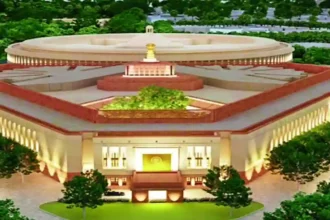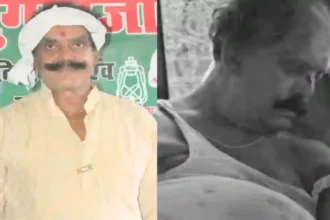Introduction
A recent infographic shared by The News Minute (TNM) attempts to shed light on male suicides in India. While raising awareness is commendable, the manner of presentation raises serious concerns about data distortion and selective narrative framing, especially around sensitive topics like male mental health and marital distress.
The Graphic: Misleading Visuals
The infographic from TNM(The News Minute) claims:
- 8,09,506 men died by suicide between 2015–2022.
- Of these, 81,402 were male farmers.
That means only ~10.06% of the male suicides were farmers.
But visually, the inner circle showing farmer suicides appears disproportionately large — almost 30–40% of the outer circle, misleading viewers into thinking farmer suicides form a much larger share.
This is a textbook example of data manipulation through visual misrepresentation.
What’s Being Downplayed? Marital Stress & Legal Harassment
The article headline emphasizes that:
“Marriage-related issues account for only 3.28% of male suicides.”
While that may be technically correct, this framing conveniently ignores related categories such as:
- Family problems
- Dowry/498A cases
- Custody battles
- Domestic disputes
These are often categorized separately in NCRB data — but in real life, they’re all interconnected stressors, especially for men.
According to NCRB’s classification system, broader “family problems” account for nearly 33% of male suicides in certain years. But the report does not segregate:
- False accusations
- Gender-biased legal processes
- Social stigma around men’s emotions
Thus, the 3.28% figure is misleading, as it masks the broader psychological pressure faced by men post-marriage.
“Farmer Suicides” – A Misleading Tag?
In India, owning agricultural land is enough to be called a “farmer” in government records. This means:
- Many “farmers” may not be involved in actual farming.
- They could be salaried, unemployed, or businessmen with ancestral land.
This broad label makes it easier for certain media to politicize farmer suicides and emotionally appeal to public sentiment — while ignoring other major vulnerable male groups.
Male Suicides Are a Societal Issue, Not a Political Token
- Men form over 70% of all suicide victims in India.
- Yet, there are no national helplines or ministries for men.
- Legal systems, media narratives, and social institutions often ignore or mock male vulnerabilities.
It’s time we recognize:
- Suicide is not just a rural or farmer issue.
- Marriage-related stress, false legal cases, and emotional neglect are real, but underreported causes.
Conclusion
Male suicides are not a “debate” to win but a tragedy to prevent.
Media must stop cherry-picking data and misleading the public with half-truths and distorted visuals. Every statistic is a life, and every life deserves justice — irrespective of gender or profession.
Follow The News Drill for Real Data, Not Narratives.

















